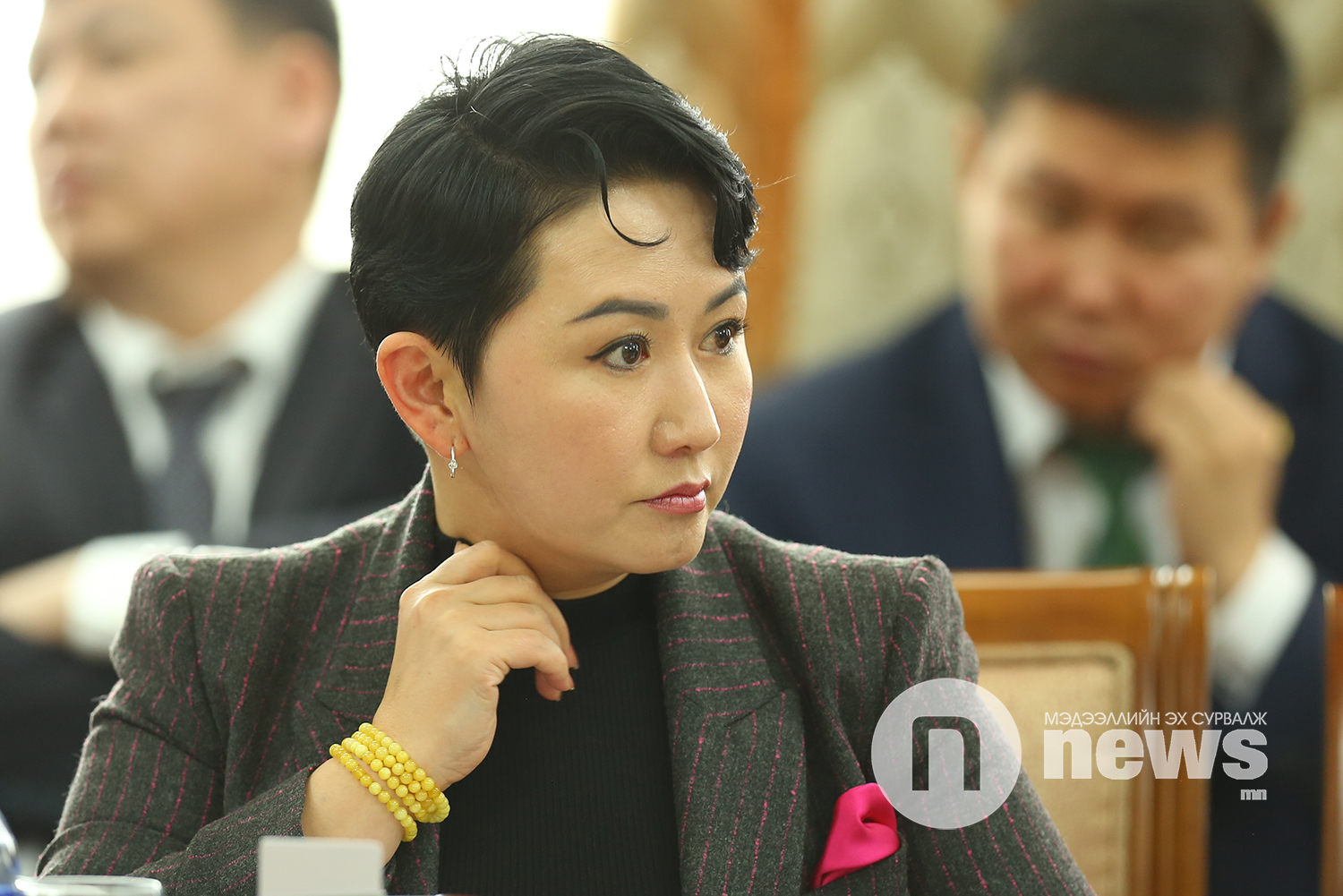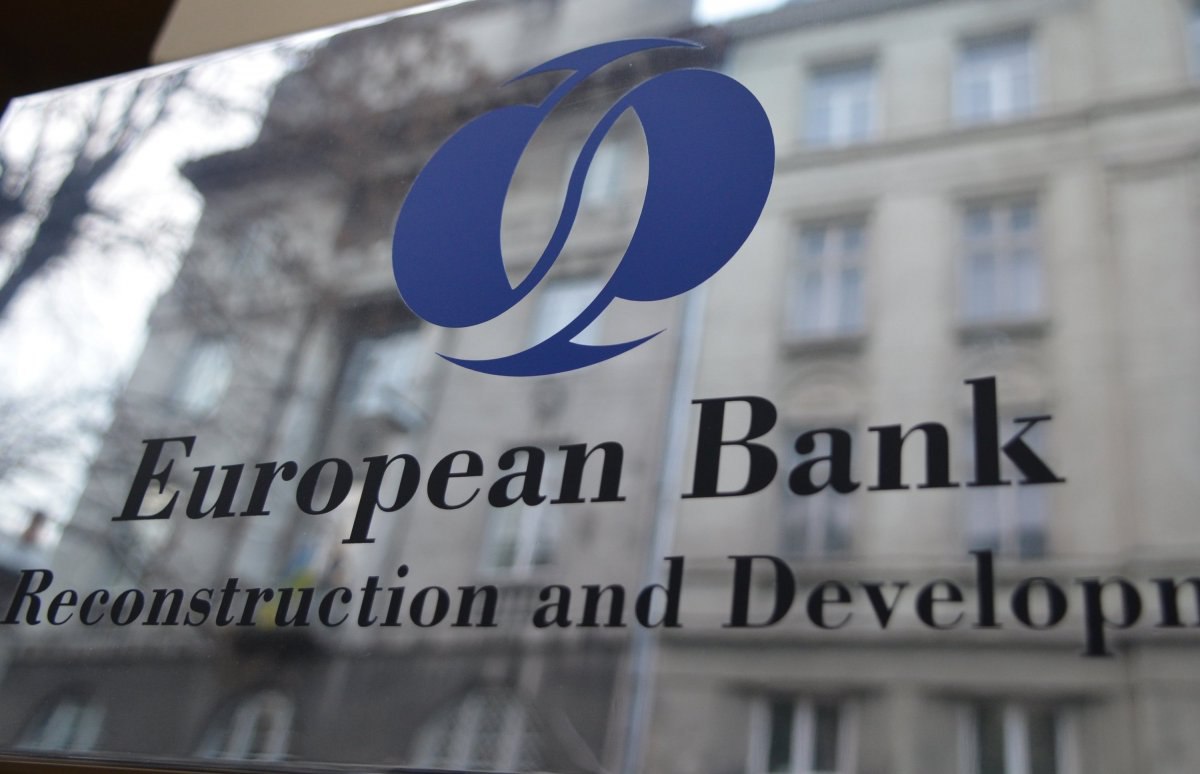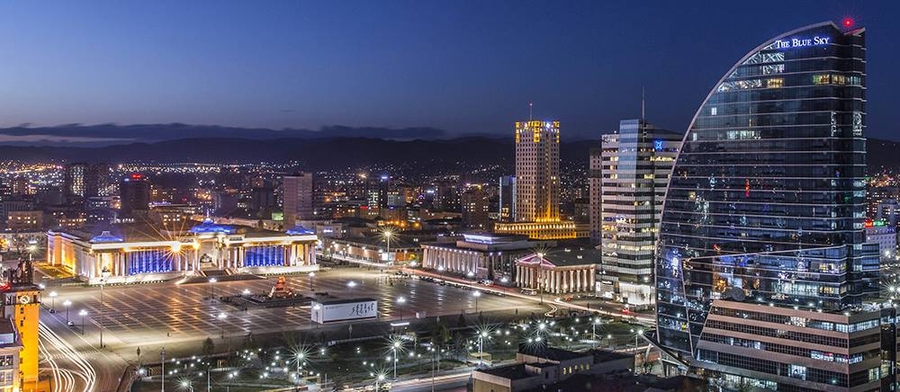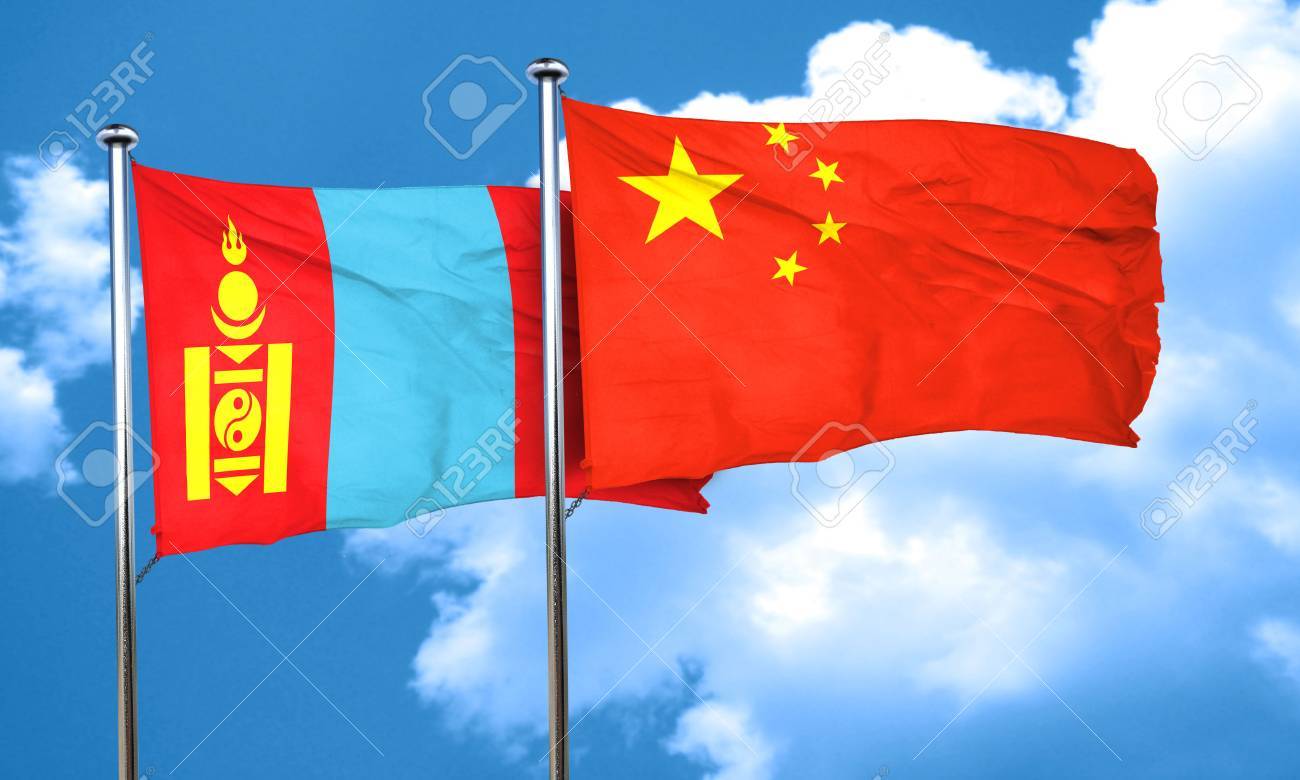Events
| Name | organizer | Where |
|---|---|---|
| MBCC “Doing Business with Mongolia seminar and Christmas Receptiom” Dec 10. 2025 London UK | MBCCI | London UK Goodman LLC |
NEWS

Mongolian FM to visit PH for bilateral meeting on Monday www.mb.com.ph
Mongolian Foreign Minister Battsetseg Batmunkh will be in the Philippines from May 19 to 20 for an official visit, the Department of Foreign Affairs (DFA) said.
Foreign Minister Battsetseg Batmunkh of Mongolia (Photo from Ministry of Foreign Affairs of Mongolia)
In a statement on Sunday, May 18, the DFA shared that Foreign Affairs Secretary Enrique Manalo and Battsetseg will hold a bilateral meeting to assess Philippines-Mongolia relations “and to chart ways forward to further enhance the two countries’ diplomatic relations, which have entered their sixth decade.”
Aside from bilateral ties, the two officials are also expected to “discuss strategic issues of mutual concern.”
Also part of Battsetseg’s itinerary are the courtesy calls to President Marcos and Senate President Francis Escudero.
An announcement about the foreign minister’s visit to Manila was also posted on the X (formerly Twitter) account of Mongolia’s Ministry of Foreign Affairs (MFA).
In 2023, the two nations commemorated the golden anniversary of the establishment of their bilateral relations.
Battsetseg’s visit was made possible by an invitation from Manalo, who visited Mongolia’s capital city of Ulaanbaatar last August 2024.
Similar to how Manalo was the first foreign secretary from the Philippines to travel to Mongolia in an official capacity, Battsetseg’s visit this week will also mark the first official visit of a Mongolian foreign minister to the Philippines since 1984.
In October 2024, Mongolian Deputy Prime Minister Amarsaikhan Sainbuyan visited the Philippines, recommending available facilities so Philippine companies can penetrate into the Central Asian market.
Potential areas for collaboration include investments promotion, agriculture, minerals, infrastructure development, and renewable energy, among others.

Mongolia's GDP up 2.4 pct in Q1 www.xinhuanet.com
Mongolia's gross domestic product (GDP) grew 2.4 percent year on year in the first quarter of 2025, official data released by the country's National Statistics Office (NSO) showed Saturday.
The Asian country's GDP totaled 19 trillion Mongolian tugriks (5.3 billion U.S. dollars) in the January-March period, and the growth was mainly attributed to good performance in the agricultural, services and mining sectors, the NSO said.
The landlocked country's economy grew 4.9 percent in 2024, according to the statistical agency.
Meanwhile, the Asian Development Bank (ADB) has predicted that Mongolia's economy would grow by 6.6 percent in 2025 and 5.9 percent in 2026.
According to the ADB, economic growth in Mongolia will be mainly driven by increased mining output and services and supported by robust domestic demand, infrastructure investment, and a gradual recovery in agriculture
...

EBRD and EU step up support for MSMEs in Central Asia and Mongolia www.ebrd.com
The European Bank for Reconstruction and Development (EBRD) and the European Union (EU) are boosting access to finance for micro, small and medium-sized enterprises (MSMEs) in Central Asia and Mongolia.
An additional €25 million in EU guarantees will be made available to local partner financial institutions for on-lending to this business segment. This marks an expansion of the existing Growth4All guarantees to a region where MSMEs form the backbone of the economy but often struggle to obtain finance to grow their business. The comprehensive package is expected to support the supply and demand of MSME financing by reducing associated risks and encouraging financial intermediaries to direct new lending to businesses that need it the most. It is expected to benefit around 3,500 businesses across the Kyrgyz Republic, Kazakhstan, Mongolia, Tajikistan, Turkmenistan and Uzbekistan
The EU is providing the guarantees through its European Fund for Sustainable Development Plus (EFSD+), which supports financing and investment operations in partner countries outside Europe, in line with the EU’s Global Gateway investment strategy.
EBRD President Odile Renaud-Basso said: “We are very proud to support micro, small and medium-sized enterprises through this guarantee, which is now also available in Central Asia and Mongolia. This is yet another strong example of how our cooperation with the European Union as our key partner responds to the everyday needs of businesses in the region, while at the same time underlining our determination to support strong, resilient and inclusive businesses.
European Commissioner for Economy and Productivity; Implementation and Simplification Valdis Dombrovskis said: “This agreement will see the EU partner with the EBRD to provide an additional €25 million in guarantees under the Growth4All initiative, expanding access to finance for micro, small, and medium-sized enterprises in Central Asia and Mongolia. As the backbone of these countries' economies, facilitating their access to finance will help create new jobs and opportunities, driving inclusive and resilient economic growth. This partnership demonstrates the EU's commitment to building and deepening mutually beneficial relationships worldwide, aligning with the EU's Global Gateway investment strategy.”

ADB, Ulaanbaatar Flour Partner to Support Wheat Supply Chain in Mongolia www.adb.org
The Asian Development Bank (ADB) and Ulaanbaatar Flour Limited Liability Company (UBF) today signed a 3-year $10 million loan to support local wheat procurement to meet the increasing demand for domestically processed wheat flour in Mongolia. This financing will provide UBF with working capital to purchase wheat from local farmers.
“Wheat flour is a key staple for Mongolian families, representing about one-third of their daily caloric intake. However, local wheat production faces challenges due to a single harvest season and vulnerability to climate events,” said ADB Country Director for Mongolia Shannon Cowlin. “This project will help stabilize the wheat supply chain by supporting UBF’s procurement from local farmers, especially women, and will contribute to a more resilient and inclusive agriculture sector. It will also enhance Mongolia’s food sustainability and reduce reliance on imports.”
The project will facilitate consistent wheat procurement and provide a stable buyer for 250 wheat farming enterprises, including smallholder and women-led farms. UBF will also integrate the needs of women suppliers into its procurement policies and disseminate awareness raising materials that encourage the redistribution of unpaid care work and support prevention and response to domestic violence within farming communities.
“We are proud to continue our partnership with ADB to strengthen Mongolia’s wheat value chain and support local farmers,” said the CEO of Ulaanbaatar Flour LLC Bakhatguli Nuktarkhaan. “This financing is critical to ensuring a reliable supply of quality wheat for our operations while empowering smallholder and women-led farms. Through this collaboration, we aim to improve food security, promote inclusive growth in rural communities, and build resilience against climate impacts.”
Additionally, a $500,000 technical assistance grant will be provided to enhance the resilience of wheat farmers through training programs in financial literacy, sustainable food security, and climate-adaptive agricultural practices. These practices will include effective soil, water, and pest management.
Regional food security is a priority for ADB, which has recently increased its support for long-term food and nutrition in Asia and the Pacific by $26 billion. This brings ADB’s total funding commitment for food security initiatives to $40 billion for the period of 2022 to 2030. Direct support for farmers and the agriculture value chain is essential, and the expanded commitment includes $11 billion allocated for private sector investments. This financial package with UBF provides direct support to Mongolia’s agrifood private sector.
ADB and UBF, Mongolia’s leading wheat flour processor with a 30% market share, has a long-standing partnership. UBF is part of the Tavan Bogd Group, one of the country’s largest and most diversified business groups. This loan marks ADB’s fourth transaction with Tavan Bogd Group and third with UBF.
ADB is a leading multilateral development bank supporting inclusive, resilient, and sustainable growth across Asia and the Pacific. Working with its members and partners to solve complex challenges together, ADB harnesses innovative financial tools and strategic partnerships to transform lives, build quality infrastructure, and safeguard our planet. Founded in 1966, ADB is owned by 69 members—50 from the region.
...

Mineral and Coal Export Capacity of the Gashuusukhait Border-Port Triples www.montsame.mn
Under the Mongolian Government’s “Port Revival” Program, construction work for the “Construction of Facilities and Infrastructure at the Gashuunsukhait Border Port” Project began in September 2019 to expand and modernize the port to international standards. The Project aims at expanding the port’s integrated transport and logistics network, boosting international trade and regional development by upgrading border gates with neighboring countries, increasing exports and imports, supporting tourism, and making a major contribution to the economy.
Before the modernization of the port, limited throughput capacity led to vehicle queues stretching more than 100 kilometers, harming public health and the environment, with outdated inspection equipment and heavy workloads posing numerous challenges.
The Project is being financed with MNT 43.5 billion in grant aid from the Government of the People’s Republic of China and MNT 29.5 billion from the State Budget of Mongolia. Of this, MNT 15.3 billion was allocated between 2019 and 2024, and the remaining MNT 14.2 billion will be provided in 2025.
Despite delays and cost pressures caused by flooding and the COVID-19 pandemic, the construction continued, with a total of 308 engineers and technicians, 50 from Mongolian companies and 258 from Chinese companies.
The port’s buildings and paved areas have been completely overhauled, with a passenger-freight inspection complex covering 31.9 hectares having been constructed, including 29 buildings. Vehicle-inspection lanes were expanded to three in each direction for traffic, while the mineral-export section now has 10 exit lanes and six entry lanes. International-standard smart gates, weighbridges, heavy-duty roads, X-ray scanners, disinfection stations, kennels for sniffer dogs, a laboratory, a power sub-station, communications and CCTV systems, lighting, fencing, and other security facilities have been installed. Management reports that these upgrades will double passenger and freight throughput and triple the capacity for exporting minerals and coal.
Established in 1992, the Gashuunsukhait border-port borders China’s Ganqimaodu port. It handles more than 50 percent of Mongolia’s coal exports and 57 percent of its copper-concentrate exports, making it the country’s largest strategic port in terms of foreign-trade turnover.

Mongolia's inflation rate reaches 8.6 pct in April www.xinhuanet.com
Mongolia's inflation rate, measured by the Consumer Price Index (CPI), reached 8.6 percent in April, local media reported on Thursday, citing the National Statistics Office (NSO).
This figure reflects a 2.9 percentage point increase compared to the same period in 2024 and a 0.3 percentage point increase from the previous month, the NSO said.
Mongolia's central bank targets an inflation rate within a range of 5 percent (+/- 2.0 percentage points) from 2027 to support macroeconomic and financial sector stability in the medium term.
Mongolia's economy in 2025 is expected to grow by 6.6 percent.
According to the Asian Development Bank, economic growth in Mongolia will be mainly driven by increased mining output and services and supported by robust domestic demand, infrastructure investment, and a gradual recovery in agriculture.

Mongolia to host BCL Asia-East 2025 Final 4 www.fiba.basketball
The culminating showpiece of the qualifying tournament for the Basketball Champions League Asia (BCL Asia) 2025 is scheduled to take place on May 30-31 at the UG Arena in Ulaanbaatar.
A venue that has hosted major FIBA contests from national team events to club competitions in recent years, the UG Arena recently held the fifth and final window of the BCL Asia-East 2025 Group Phase.
There, the Taoyuan Pauian Pilots of the P.League+ and 'The League' outfit Ulaanbaatar Xac Broncos completed a sweep of Groups A and B, respectively, to headline the Final 4 ensemble.
Both teams finished atop their groups with pristine 6-0 records, with the Pilots the very first to advance still with a game to spare in their schedule following a 105-66 conquest of Bishrelt Metal last April 29.
The Broncos, on the other hand, sealed their ticket by way of a 94-73 victory over another Chinese Taipei side in New Taipei just last May 12, keeping their mastery of the Kings to go 4-0 at that time.
Ulaanbaatar Xac was the third team to reach the Semi-Finals after Taoyuan Pauian and New Taipei, which secured their own slot following an 88-82 win over Hi-Tech Basketball last May 6, eventually ending at 4-2.
Completing the cast were Pelita Jaya Basketball, who managed to clinch their slot after the Pilots beat Bishrelt Metal again, 85-63, last May 12 as well to garner their sixth win in as many games.
Pelita Jaya went on to finish second in Group A with a 4-2 record and will look to emulate last year's campaign, where they became one of two teams from the BCL Asia Qualifiers to enter the tournament proper.
Pelita Jaya will face the Broncos in the knockout crossover Semi-Finals set May 30. The other bracket will feature an all-Chinese Taipei meeting as Taoyuan Pauian and New Taipei are set to lock horns.
The winners will head not only to the Final but also to the BCL Asia, where they will join the champion teams from China, Japan, Korea, and the Philippines, in addition to two teams from the FIBA West Asia Super League.
FIBA

Savings in Tugrug Increase by MNT 3.3 Trillion www.montsame.mn
According to the preliminary results for April 2025, cash in circulation reached MNT 1.1 trillion, which is MNT 0.6 billion higher than the same period in 2024.
Net domestic assets accounted for 88.2 percent of the money supply, while net foreign assets made up the remaining 11.8 percent.
Net domestic assets reached MNT 36.6 trillion, reflecting an increase of MNT 8.3 trillion compared to the same period in 2024. Preliminary data shows that net foreign assets stood at MNT 4.9 trillion, marking a decrease of MNT 1 trillion from the same period last year.
By the end of April 2025, total tugrug savings reached MNT 21.9 trillion, an increase of MNT 3.3 trillion compared to the same period in 2024. Of this amount, MNT 19.2 trillion is held by individuals, while MNT 2.8 trillion is held by businesses and organizations.
Foreign currency savings reached MNT 5.2 trillion, an increase of MNT 874.4 billion compared to the same period in 2024.
The total outstanding loan balance granted to businesses, organizations, and individuals has reached MNT 39.8 trillion, marking an increase of MNT 9.9 trillion compared to the same period in 2024. Of the total outstanding loan balance, 60.1 percent is held by individuals, 37.1 percent by private companies, 1.2 percent by government organizations, and 1.6 percent by financial institutions.
The outstanding balance of regular loans constitutes 90.9 percent of the total loans, while loans requiring attention make up 3.9 percent, and non-performing loans account for 5.2 percent of the total loans.
The outstanding balance of mortgage loans in Mongolia is 9.6 trillion MNT, with 97.7 percent classified as regular loans, 1.4 percent, or MNT 139.2 billion, as loans requiring attention, and 0.9 percent, or MNT 86.0 billion, as non-performing loans.
The monthly average exchange rate of the Mongolian Tugrug against the US Dollar, as announced by the Bank of Mongolia, was MNT 3,541.60 in April 2025. This represents a depreciation of MNT 165.1 compared to the same period in 2024.
The monthly average exchange rate of the Mongolian Tugrug against the Euro was MNT 3,978.76. This reflects a depreciation of MNT 355.2 compared to the same period in 2024 and a depreciation of MNT 210.2 from the previous month.
The monthly average exchange rate of the Mongolian Tugrug against the Russian Ruble was MNT 42.53. This represents a depreciation of MNT 6.2 compared to the same period in 2024 and a decrease of MNT 1.8 from the previous month.
The monthly average exchange rate of the Mongolian Tugrug against the Chinese Yuan was MNT 485.09, representing a depreciation of MNT 18.7 compared to the same period in 2024.
...

Dafang exports four HD European overhead cranes to Mongolia www.hoistmagazine.com
Henan Dafang Heavy Machine has exported four HD European overhead cranes to Mongolia, enhancing the industrial capabilities in the region.
The shipment included two cranes with a 3-ton capacity and two cranes with a 2-ton capacity.
The cranes are designed according to the European FEM standard, featuring a square box structure and a European wire rope electric hoist as the lifting mechanism.
They are equipped with dual-speed lifting and variable frequency control for crane travel and trolley running, allowing for precise operations.
With spans ranging from 9 metres to 15.66 metres and heights between 3.6 metres and 15 metres, the cranes are suitable for various industrial applications
The applications include workshops, warehouses, and industries like machinery manufacturing, metallurgy, and petrochemicals.
Dafang’s European single bridge cranes offer multiple operation modes, including handle and remote control, or a combination of both, to meet diverse operational needs.
They are designed for environments with temperatures ranging from -20 to 40 degrees Celsius and have a working grade of A5.
The cranes are useful for tasks requiring precise positioning and assembly of large parts.
Their design prioritises easy maintenance, with lifting and travelling mechanisms being easy to repair and replace, reducing downtime and ensuring continuous production.
The use of high-quality materials extends the service life of the cranes, reducing the need for frequent maintenance, said Dafang.
In addition, their professional design incorporates strong rigidity, light weight, and a cost-effective structure, saving plant space and investment costs while delivering performance.
Dafang, in a statement, said: “Dafang designs the HD European single beam bridge crane according to the European FEM standard. The main beam is a square box structure.
“It is in conjunction with the European wire rope electric hoist as its lifting mechanism. It also adopts a dual-speed lifting and variable frequency control method for crane travel and trolley running.”

2nd railway to Mongolia commences construction www.chinadaily.com.cn
The railway's section in China is shouldered by CHN Energy, the country's largest coal-fired power generator by capacity. It is planned to be finished by 2027.
This is the second railway line built between China and Mongolia after the first one that was completed in 1956, it said.
It is expected that the commissioning of the new railway would create an opportunity for increased coal exports from Mongolia to China and would boost the GDP per capita.
The new railway is expected to carry about 30 million metric tons of cargo each year and will greatly improve connectivity between the two nations. It will help make the movement of minerals and energy resources more efficient, said Wang Shangjun, chairman of the railway company responsible for the project under CHN Energy.
The project is also important for boosting overall economic cooperation and enhancing cooperation under the Belt and Road Initiative, which is aimed at improving infrastructure connectivity and promoting common prosperity, he said.
The new line will connect with China's existing Ganqimaodu-Wanshuiquan railway, which is already operating. This link will join China's rail network with Mongolia's southern railway system.
According to analysts from the European Bank for Reconstruction and Development, Mongolia's coal export revenue declined in 2024 due to falling export prices, despite a record-high production volume.
Analysts believe the railway project is a joint effort between China and Mongolia.
The new railway is a major step for China-Mongolia trade, which will significantly increase the amount of energy and resources traded between the two countries, said Lin Boqiang, head of the China Institute for Studies in Energy Policy at Xiamen University.
He also pointed out that the railway will improve infrastructure links, boosting overall economic and trade activity in the areas along the railway line.
The project is expected to help upgrade related businesses, such as cross-border logistics, industrial parks near the border, and border trade services, he said.
"Opening a new chapter for China-Mongolia relations, the project will lead to more integrated development and mutually beneficial trade between the two nations."
- «
- 1
- 2
- 3
- 4
- 5
- 6
- 7
- 8
- 9
- 10
- 11
- 12
- 13
- 14
- 15
- 16
- 17
- 18
- 19
- 20
- 21
- 22
- 23
- 24
- 25
- 26
- 27
- 28
- 29
- 30
- 31
- 32
- 33
- 34
- 35
- 36
- 37
- 38
- 39
- 40
- 41
- 42
- 43
- 44
- 45
- 46
- 47
- 48
- 49
- 50
- 51
- 52
- 53
- 54
- 55
- 56
- 57
- 58
- 59
- 60
- 61
- 62
- 63
- 64
- 65
- 66
- 67
- 68
- 69
- 70
- 71
- 72
- 73
- 74
- 75
- 76
- 77
- 78
- 79
- 80
- 81
- 82
- 83
- 84
- 85
- 86
- 87
- 88
- 89
- 90
- 91
- 92
- 93
- 94
- 95
- 96
- 97
- 98
- 99
- 100
- 101
- 102
- 103
- 104
- 105
- 106
- 107
- 108
- 109
- 110
- 111
- 112
- 113
- 114
- 115
- 116
- 117
- 118
- 119
- 120
- 121
- 122
- 123
- 124
- 125
- 126
- 127
- 128
- 129
- 130
- 131
- 132
- 133
- 134
- 135
- 136
- 137
- 138
- 139
- 140
- 141
- 142
- 143
- 144
- 145
- 146
- 147
- 148
- 149
- 150
- 151
- 152
- 153
- 154
- 155
- 156
- 157
- 158
- 159
- 160
- 161
- 162
- 163
- 164
- 165
- 166
- 167
- 168
- 169
- 170
- 171
- 172
- 173
- 174
- 175
- 176
- 177
- 178
- 179
- 180
- 181
- 182
- 183
- 184
- 185
- 186
- 187
- 188
- 189
- 190
- 191
- 192
- 193
- 194
- 195
- 196
- 197
- 198
- 199
- 200
- 201
- 202
- 203
- 204
- 205
- 206
- 207
- 208
- 209
- 210
- 211
- 212
- 213
- 214
- 215
- 216
- 217
- 218
- 219
- 220
- 221
- 222
- 223
- 224
- 225
- 226
- 227
- 228
- 229
- 230
- 231
- 232
- 233
- 234
- 235
- 236
- 237
- 238
- 239
- 240
- 241
- 242
- 243
- 244
- 245
- 246
- 247
- 248
- 249
- 250
- 251
- 252
- 253
- 254
- 255
- 256
- 257
- 258
- 259
- 260
- 261
- 262
- 263
- 264
- 265
- 266
- 267
- 268
- 269
- 270
- 271
- 272
- 273
- 274
- 275
- 276
- 277
- 278
- 279
- 280
- 281
- 282
- 283
- 284
- 285
- 286
- 287
- 288
- 289
- 290
- 291
- 292
- 293
- 294
- 295
- 296
- 297
- 298
- 299
- 300
- 301
- 302
- 303
- 304
- 305
- 306
- 307
- 308
- 309
- 310
- 311
- 312
- 313
- 314
- 315
- 316
- 317
- 318
- 319
- 320
- 321
- 322
- 323
- 324
- 325
- 326
- 327
- 328
- 329
- 330
- 331
- 332
- 333
- 334
- 335
- 336
- 337
- 338
- 339
- 340
- 341
- 342
- 343
- 344
- 345
- 346
- 347
- 348
- 349
- 350
- 351
- 352
- 353
- 354
- 355
- 356
- 357
- 358
- 359
- 360
- 361
- 362
- 363
- 364
- 365
- 366
- 367
- 368
- 369
- 370
- 371
- 372
- 373
- 374
- 375
- 376
- 377
- 378
- 379
- 380
- 381
- 382
- 383
- 384
- 385
- 386
- 387
- 388
- 389
- 390
- 391
- 392
- 393
- 394
- 395
- 396
- 397
- 398
- 399
- 400
- 401
- 402
- 403
- 404
- 405
- 406
- 407
- 408
- 409
- 410
- 411
- 412
- 413
- 414
- 415
- 416
- 417
- 418
- 419
- 420
- 421
- 422
- 423
- 424
- 425
- 426
- 427
- 428
- 429
- 430
- 431
- 432
- 433
- 434
- 435
- 436
- 437
- 438
- 439
- 440
- 441
- 442
- 443
- 444
- 445
- 446
- 447
- 448
- 449
- 450
- 451
- 452
- 453
- 454
- 455
- 456
- 457
- 458
- 459
- 460
- 461
- 462
- 463
- 464
- 465
- 466
- 467
- 468
- 469
- 470
- 471
- 472
- 473
- 474
- 475
- 476
- 477
- 478
- 479
- 480
- 481
- 482
- 483
- 484
- 485
- 486
- 487
- 488
- 489
- 490
- 491
- 492
- 493
- 494
- 495
- 496
- 497
- 498
- 499
- 500
- 501
- 502
- 503
- 504
- 505
- 506
- 507
- 508
- 509
- 510
- 511
- 512
- 513
- 514
- 515
- 516
- 517
- 518
- 519
- 520
- 521
- 522
- 523
- 524
- 525
- 526
- 527
- 528
- 529
- 530
- 531
- 532
- 533
- 534
- 535
- 536
- 537
- 538
- 539
- 540
- 541
- 542
- 543
- 544
- 545
- 546
- 547
- 548
- 549
- 550
- 551
- 552
- 553
- 554
- 555
- 556
- 557
- 558
- 559
- 560
- 561
- 562
- 563
- 564
- 565
- 566
- 567
- 568
- 569
- 570
- 571
- 572
- 573
- 574
- 575
- 576
- 577
- 578
- 579
- 580
- 581
- 582
- 583
- 584
- 585
- 586
- 587
- 588
- 589
- 590
- 591
- 592
- 593
- 594
- 595
- 596
- 597
- 598
- 599
- 600
- 601
- 602
- 603
- 604
- 605
- 606
- 607
- 608
- 609
- 610
- 611
- 612
- 613
- 614
- 615
- 616
- 617
- 618
- 619
- 620
- 621
- 622
- 623
- 624
- 625
- 626
- 627
- 628
- 629
- 630
- 631
- 632
- 633
- 634
- 635
- 636
- 637
- 638
- 639
- 640
- 641
- 642
- 643
- 644
- 645
- 646
- 647
- 648
- 649
- 650
- 651
- 652
- 653
- 654
- 655
- 656
- 657
- 658
- 659
- 660
- 661
- 662
- 663
- 664
- 665
- 666
- 667
- 668
- 669
- 670
- 671
- 672
- 673
- 674
- 675
- 676
- 677
- 678
- 679
- 680
- 681
- 682
- 683
- 684
- 685
- 686
- 687
- 688
- 689
- 690
- 691
- 692
- 693
- 694
- 695
- 696
- 697
- 698
- 699
- 700
- 701
- 702
- 703
- 704
- 705
- 706
- 707
- 708
- 709
- 710
- 711
- 712
- 713
- 714
- 715
- 716
- 717
- 718
- 719
- 720
- 721
- 722
- 723
- 724
- 725
- 726
- 727
- 728
- 729
- 730
- 731
- 732
- 733
- 734
- 735
- 736
- 737
- 738
- 739
- 740
- 741
- 742
- 743
- 744
- 745
- 746
- 747
- 748
- 749
- 750
- 751
- 752
- 753
- 754
- 755
- 756
- 757
- 758
- 759
- 760
- 761
- 762
- 763
- 764
- 765
- 766
- 767
- 768
- 769
- 770
- 771
- 772
- 773
- 774
- 775
- 776
- 777
- 778
- 779
- 780
- 781
- 782
- 783
- 784
- 785
- 786
- 787
- 788
- 789
- 790
- 791
- 792
- 793
- 794
- 795
- 796
- 797
- 798
- 799
- 800
- 801
- 802
- 803
- 804
- 805
- 806
- 807
- 808
- 809
- 810
- 811
- 812
- 813
- 814
- 815
- 816
- 817
- 818
- 819
- 820
- 821
- 822
- 823
- 824
- 825
- 826
- 827
- 828
- 829
- 830
- 831
- 832
- 833
- 834
- 835
- 836
- 837
- 838
- 839
- 840
- 841
- 842
- 843
- 844
- 845
- 846
- 847
- 848
- 849
- 850
- 851
- 852
- 853
- 854
- 855
- 856
- 857
- 858
- 859
- 860
- 861
- 862
- 863
- 864
- 865
- 866
- 867
- 868
- 869
- 870
- 871
- 872
- 873
- 874
- 875
- 876
- 877
- 878
- 879
- 880
- 881
- 882
- 883
- 884
- 885
- 886
- 887
- 888
- 889
- 890
- 891
- 892
- 893
- 894
- 895
- 896
- 897
- 898
- 899
- 900
- 901
- 902
- 903
- 904
- 905
- 906
- 907
- 908
- 909
- 910
- 911
- 912
- 913
- 914
- 915
- 916
- 917
- 918
- 919
- 920
- 921
- 922
- 923
- 924
- 925
- 926
- 927
- 928
- 929
- 930
- 931
- 932
- 933
- 934
- 935
- 936
- 937
- 938
- 939
- 940
- 941
- 942
- 943
- 944
- 945
- 946
- 947
- 948
- 949
- 950
- 951
- 952
- 953
- 954
- 955
- 956
- 957
- 958
- 959
- 960
- 961
- 962
- 963
- 964
- 965
- 966
- 967
- 968
- 969
- 970
- 971
- 972
- 973
- 974
- 975
- 976
- 977
- 978
- 979
- 980
- 981
- 982
- 983
- 984
- 985
- 986
- 987
- 988
- 989
- 990
- 991
- 992
- 993
- 994
- 995
- 996
- 997
- 998
- 999
- 1000
- 1001
- 1002
- 1003
- 1004
- 1005
- 1006
- 1007
- 1008
- 1009
- 1010
- 1011
- 1012
- 1013
- 1014
- 1015
- 1016
- 1017
- 1018
- 1019
- 1020
- 1021
- 1022
- 1023
- 1024
- 1025
- 1026
- 1027
- 1028
- 1029
- 1030
- 1031
- 1032
- 1033
- 1034
- 1035
- 1036
- 1037
- 1038
- 1039
- 1040
- 1041
- 1042
- 1043
- 1044
- 1045
- 1046
- 1047
- 1048
- 1049
- 1050
- 1051
- 1052
- 1053
- 1054
- 1055
- 1056
- 1057
- 1058
- 1059
- 1060
- 1061
- 1062
- 1063
- 1064
- 1065
- 1066
- 1067
- 1068
- 1069
- 1070
- 1071
- 1072
- 1073
- 1074
- 1075
- 1076
- 1077
- 1078
- 1079
- 1080
- 1081
- 1082
- 1083
- 1084
- 1085
- 1086
- 1087
- 1088
- 1089
- 1090
- 1091
- 1092
- 1093
- 1094
- 1095
- 1096
- 1097
- 1098
- 1099
- 1100
- 1101
- 1102
- 1103
- 1104
- 1105
- 1106
- 1107
- 1108
- 1109
- 1110
- 1111
- 1112
- 1113
- 1114
- 1115
- 1116
- 1117
- 1118
- 1119
- 1120
- 1121
- 1122
- 1123
- 1124
- 1125
- 1126
- 1127
- 1128
- 1129
- 1130
- 1131
- 1132
- 1133
- 1134
- 1135
- 1136
- 1137
- 1138
- 1139
- 1140
- 1141
- 1142
- 1143
- 1144
- 1145
- 1146
- 1147
- 1148
- 1149
- 1150
- 1151
- 1152
- 1153
- 1154
- 1155
- 1156
- 1157
- 1158
- 1159
- 1160
- 1161
- 1162
- 1163
- 1164
- 1165
- 1166
- 1167
- 1168
- 1169
- 1170
- 1171
- 1172
- 1173
- 1174
- 1175
- 1176
- 1177
- 1178
- 1179
- 1180
- 1181
- 1182
- 1183
- 1184
- 1185
- 1186
- 1187
- 1188
- 1189
- 1190
- 1191
- 1192
- 1193
- 1194
- 1195
- 1196
- 1197
- 1198
- 1199
- 1200
- 1201
- 1202
- 1203
- 1204
- 1205
- 1206
- 1207
- 1208
- 1209
- 1210
- 1211
- 1212
- 1213
- 1214
- 1215
- 1216
- 1217
- 1218
- 1219
- 1220
- 1221
- 1222
- 1223
- 1224
- 1225
- 1226
- 1227
- 1228
- 1229
- 1230
- 1231
- 1232
- 1233
- 1234
- 1235
- 1236
- 1237
- 1238
- 1239
- 1240
- 1241
- 1242
- 1243
- 1244
- 1245
- 1246
- 1247
- 1248
- 1249
- 1250
- 1251
- 1252
- 1253
- 1254
- 1255
- 1256
- 1257
- 1258
- 1259
- 1260
- 1261
- 1262
- 1263
- 1264
- 1265
- 1266
- 1267
- 1268
- 1269
- 1270
- 1271
- 1272
- 1273
- 1274
- 1275
- 1276
- 1277
- 1278
- 1279
- 1280
- 1281
- 1282
- 1283
- 1284
- 1285
- 1286
- 1287
- 1288
- 1289
- 1290
- 1291
- 1292
- 1293
- 1294
- 1295
- 1296
- 1297
- 1298
- 1299
- 1300
- 1301
- 1302
- 1303
- 1304
- 1305
- 1306
- 1307
- 1308
- 1309
- 1310
- 1311
- 1312
- 1313
- 1314
- 1315
- 1316
- 1317
- 1318
- 1319
- 1320
- 1321
- 1322
- 1323
- 1324
- 1325
- 1326
- 1327
- 1328
- 1329
- 1330
- 1331
- 1332
- 1333
- 1334
- 1335
- 1336
- 1337
- 1338
- 1339
- 1340
- 1341
- 1342
- 1343
- 1344
- 1345
- 1346
- 1347
- 1348
- 1349
- 1350
- 1351
- 1352
- 1353
- 1354
- 1355
- 1356
- 1357
- 1358
- 1359
- 1360
- 1361
- 1362
- 1363
- 1364
- 1365
- 1366
- 1367
- 1368
- 1369
- 1370
- 1371
- 1372
- 1373
- 1374
- 1375
- 1376
- 1377
- 1378
- 1379
- 1380
- 1381
- 1382
- 1383
- 1384
- 1385
- 1386
- 1387
- 1388
- 1389
- 1390
- 1391
- 1392
- 1393
- 1394
- 1395
- 1396
- 1397
- 1398
- 1399
- 1400
- 1401
- 1402
- 1403
- 1404
- 1405
- 1406
- 1407
- 1408
- 1409
- 1410
- 1411
- 1412
- 1413
- 1414
- 1415
- 1416
- 1417
- 1418
- 1419
- 1420
- 1421
- 1422
- 1423
- 1424
- 1425
- 1426
- 1427
- 1428
- 1429
- 1430
- 1431
- 1432
- 1433
- 1434
- 1435
- 1436
- 1437
- 1438
- 1439
- 1440
- 1441
- 1442
- 1443
- 1444
- 1445
- 1446
- 1447
- 1448
- 1449
- 1450
- 1451
- 1452
- 1453
- 1454
- 1455
- 1456
- 1457
- 1458
- 1459
- 1460
- 1461
- 1462
- 1463
- 1464
- 1465
- 1466
- 1467
- 1468
- 1469
- 1470
- 1471
- 1472
- 1473
- 1474
- 1475
- 1476
- 1477
- 1478
- 1479
- 1480
- 1481
- 1482
- 1483
- 1484
- 1485
- 1486
- 1487
- 1488
- 1489
- 1490
- 1491
- 1492
- 1493
- 1494
- 1495
- 1496
- 1497
- 1498
- 1499
- 1500
- 1501
- 1502
- 1503
- 1504
- 1505
- 1506
- 1507
- 1508
- 1509
- 1510
- 1511
- 1512
- 1513
- 1514
- 1515
- 1516
- 1517
- 1518
- 1519
- 1520
- 1521
- 1522
- 1523
- 1524
- 1525
- 1526
- 1527
- 1528
- 1529
- 1530
- 1531
- 1532
- 1533
- 1534
- 1535
- 1536
- 1537
- 1538
- 1539
- 1540
- 1541
- 1542
- 1543
- 1544
- 1545
- 1546
- 1547
- 1548
- 1549
- 1550
- 1551
- 1552
- 1553
- 1554
- 1555
- 1556
- 1557
- 1558
- 1559
- 1560
- 1561
- 1562
- 1563
- 1564
- 1565
- 1566
- 1567
- 1568
- 1569
- 1570
- 1571
- 1572
- 1573
- 1574
- 1575
- 1576
- 1577
- 1578
- 1579
- 1580
- 1581
- 1582
- 1583
- 1584
- 1585
- 1586
- 1587
- 1588
- 1589
- 1590
- 1591
- 1592
- 1593
- 1594
- 1595
- 1596
- 1597
- 1598
- 1599
- 1600
- 1601
- 1602
- 1603
- 1604
- 1605
- 1606
- 1607
- 1608
- 1609
- 1610
- 1611
- 1612
- 1613
- 1614
- 1615
- 1616
- 1617
- 1618
- 1619
- 1620
- 1621
- 1622
- 1623
- 1624
- 1625
- 1626
- 1627
- 1628
- 1629
- 1630
- 1631
- 1632
- 1633
- 1634
- 1635
- 1636
- 1637
- 1638
- 1639
- 1640
- 1641
- 1642
- 1643
- 1644
- 1645
- 1646
- 1647
- 1648
- 1649
- 1650
- 1651
- 1652
- 1653
- 1654
- 1655
- 1656
- 1657
- 1658
- 1659
- 1660
- 1661
- 1662
- 1663
- 1664
- 1665
- 1666
- 1667
- 1668
- 1669
- 1670
- 1671
- 1672
- 1673
- 1674
- 1675
- 1676
- 1677
- 1678
- 1679
- 1680
- 1681
- 1682
- 1683
- 1684
- 1685
- 1686
- 1687
- 1688
- 1689
- 1690
- 1691
- 1692
- 1693
- 1694
- 1695
- 1696
- 1697
- 1698
- 1699
- 1700
- 1701
- 1702
- 1703
- 1704
- 1705
- 1706
- 1707
- 1708
- 1709
- 1710
- 1711
- 1712
- 1713
- 1714
- 1715
- 1716
- 1717
- 1718
- 1719
- 1720
- 1721
- 1722
- 1723
- 1724
- 1725
- 1726
- 1727
- »






